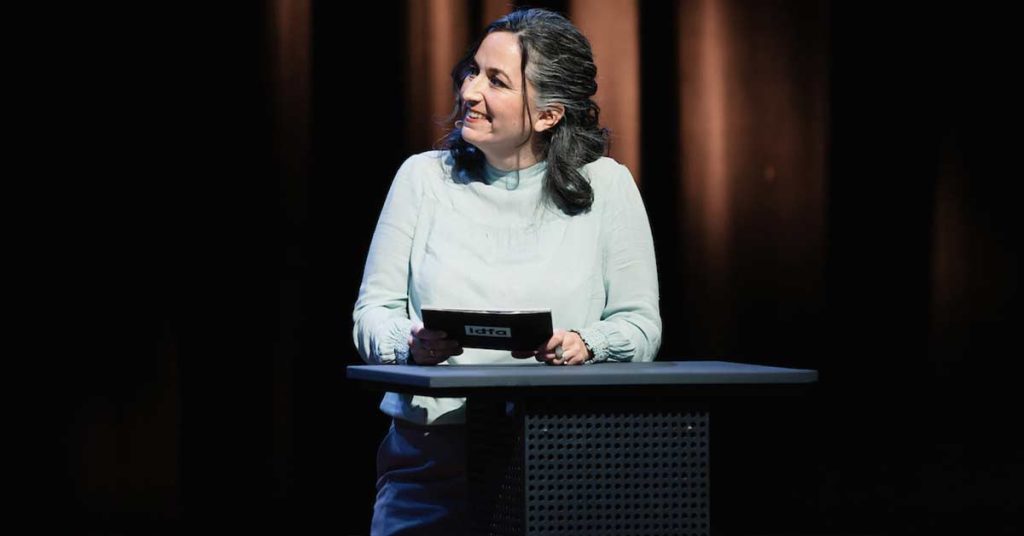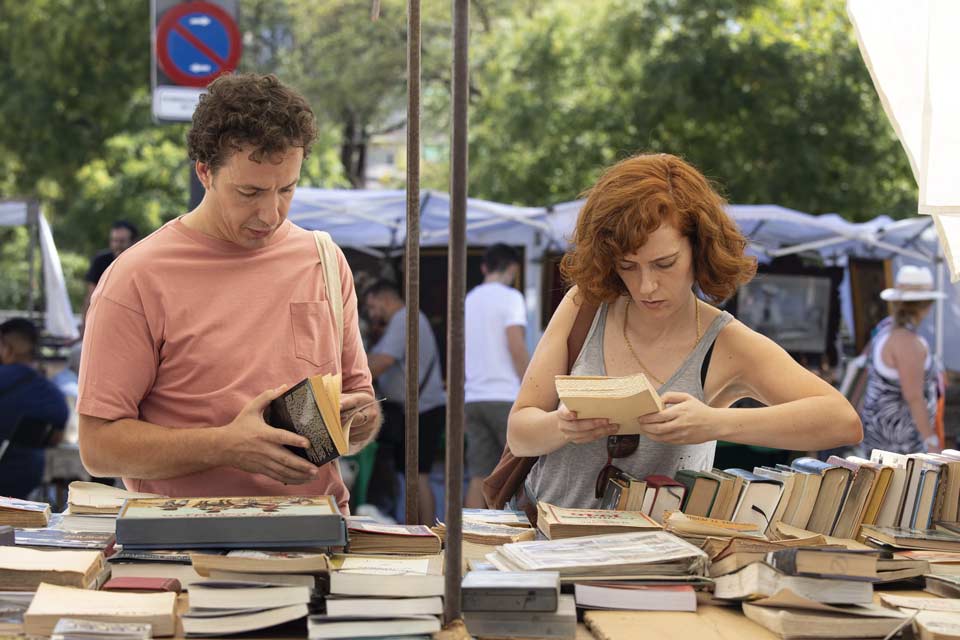
In an international landscape marked by conflicts, violence and political fractures, the artistic director of the International Documentary Film Festival Amsterdam (IDFA), Isabel Arrate Fernández, delivers a message that serves both as a warning and a declaration of principles: “In these uncertain times we need the voices of filmmakers and artists more than ever.” Her words encapsulate the spirit of an edition shaped by critical reflections on the contemporary world and by controversies that have placed the festival at the center of intense public debate.
The 38th edition brings together some of the most influential documentary filmmakers of our time, such as Laura Poitras, Werner Herzog, Gianfranco Rosi, Raoul Peck, Vitaly Mansky, Claire Simon, Tamara Kotevska, Chai Vasarhelyi and Jimmy Chin. A significant part of the program focuses on the war in Gaza and its human toll: films like Gaza’s Twins, Come Back to Me, by Mohammed Sawwaf, and The Clown of Gaza, by Abdulrahman Sabbah, portray daily life amid devastation. For Arrate Fernández, these works “go far beyond what we’ve seen in the news over the past two years” because they are made by people who have directly experienced “all these atrocities” and manage to build emotional bridges through intimate stories—those of mothers, workers and families enduring extreme circumstances.
Other titles, such as Coexistence, My Ass! by Amber Fares, approach the conflict from unexpected perspectives, incorporating elements of comedy to examine recent years in Israel and Gaza from a different angle. There are also works that revisit the past, such as Return to al-Ma’in by the collective Forensic Architecture, which investigates what happened to a Palestinian village occupied in 1948. Meanwhile, the war in Ukraine is examined in depth through films like 2000 Meters to Andriivka, Time to the Target, Militantropos and Silent Flood, which aim to broaden the understanding of the conflict beyond its immediate front-line impact.
However, beyond the films themselves, media attention has focused on IDFA’s decision this year to bar organizations funded by the State of Israel—such as the DocAviv Festival, the CoPro Foundation and the public broadcaster Kan—a measure that also applies to Russian and Iranian state entities. The festival justified this ban by citing these governments’ “failure to uphold human rights values.” In response to criticism, Arrate Fernández clarifies that “many people think we are rejecting filmmakers or boycotting Israeli films, and that is not the case.” She emphasizes that IDFA continues to receive and evaluate films from independent filmmakers from Israel, Russia, Iran or any other country, and that the decision affects only state-backed institutions. She acknowledges, however, that the measure “created confusion” and admits it might have been inevitable under current circumstances.
IDFA has also confirmed that it joined the Dutch and Belgian cultural boycott against institutions financed by the Israeli government, a stance that does not extend to individual filmmakers. Even so, the debate continues to reverberate within and beyond cultural circles.
This is Arrate Fernández’s first edition as artistic director, although her connection to the festival spans more than twenty years, particularly through the IDFA Bertha Fund and the filmmaker support programs. Her experience lends a personal dimension to the organization, recalling emblematic moments such as when she literally had to run to pick up Victor Kossakovsky so he could arrive in time for an improvised screening of Tishe!; now, the filmmaker returns with Trillion, competing in the Envision section alongside works by Sky Hopinka, Gianluca Matarrese, Mo Tan and Miguel Eek.
Portuguese filmmaker Susana de Sousa Dias, the festival’s Guest of Honor, presents Fordlândia Panacea, an exploration of Henry Ford’s failed attempt to establish a rubber plantation in the Amazon. According to Arrate Fernández, de Sousa Dias has transformed the documentary world’s relationship with archival material by analyzing it not only for what it shows but also for what it conceals.
The edition also features numerous Oscar-aspiring productions, such as Eugene Jarecki’s The Six Billion Dollar Man, Raoul Peck’s Orwell: 2+2=5, Cover-Up by Laura Poitras and Mark Obenhaus, My Undesirable Friends: Part I – Last Air in Moscow by Julia Loktev, and The Tale of Silyan by Tamara Kotevska. The festival’s proximity to the start of voting for the Academy’s documentary shortlists makes it, according to Arrate Fernández, a crucial space where international members of the documentary branch converge, fostering key encounters for the industry.
With more than 250 films—including VR experiences—and thousands of professionals from around the world gathered in Amsterdam, the artistic director highlights that much of what makes IDFA special happens not only in the theaters but “in meetings, in hallways, in backstage exchanges.” There, she says, new partnerships, projects and conversations are born—interactions that can redefine the direction of documentary filmmaking worldwide. And despite the political tensions shaping this edition, Isabel Arrate Fernández insists that cinema remains an indispensable space for thinking, feeling and confronting a world that demands more questions than answers every day.

Suscríbete ahora y obtén acceso ilimitado a Caligari / Subscribe now and get unlimited access to Caligari